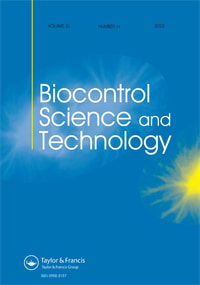 Microbial compost tea properties affect suppression of strawberry grey mould (Botrytis cinerea Pers.) November 2022 Link Here Great news in the strawberry cultivation world, recent research shows that compost tea reduces the severity of the plant disease known as Grey Mold. Grey Mold is caused by the fungal pathogen Botrytis cinerea and affects not only strawberries, but seemingly every other crop out there. From cucumbers to chrysanthemums, grey mold will infect and devastate everything from seedlings to finishing fruit. Finding a safe, effective, and low cost control is paramount to cultivation operations big and small. Enter compost tea. The microbial soup created in a well brewed tea contains live bacteria, some of which produce known anti-fungal compounds. With this knowledge, a group of researchers from Canada wanted to know if using compost tea on strawberries would improve yields and quality. To do this they made compost tea with several types of compost: Forrest Residues, Fishery Waste, Sheep Manure, Shrimp Processing Byproduct, and Vermicompost (The details as to the application and frequency are not in the research article abstract, however it can be assumed it was a foliar application at least one time). The application of these teas reduced the growth of several pathogens from 45-73% (reads: reduced losses on average by over 50%!!!). The strawberry-centric scientists wanted to know if the tea needed to be alive to provide the beneficial effect. The researchers sterilized the tea with heat, and then saw that the sterilized tea did not help to reduce the disease. This shows that's it is the living microbes, or their heat sensitive anti-fungal compounds, that are providing the benefits. Next, they wondered if bacterial population counts in the tea related to its effectiveness against the fungal diseases. Interestingly, it didn't! Which is something of a surprise. This means that even low numbers, or a diluted tea, has beneficial effect. Lastly, the team isolated several bacteria and evaluated their ability to suppress fungal growth. They found organisms genetically similar to Bacillus velezensis, and Pseudomonas azotoformans that have anti-fungal activity. This shows that compost associated microbes have evolved a function to help plants successfully grow. Maybe they need the plants to grow so they have something to compost? There are a few details that are missing from the research summary, like how long did they aerate the tea, did it get fed with molasses or fish or not at all, was it sprayed once or daily? But overall, the findings further confirm that compost teas have great benefits and have a place in commercial and hobby gardens worldwide. Thanks science!!!
0 Comments
Your comment will be posted after it is approved.
Leave a Reply. |
Archives
June 2024
Categories
All
|
Contact Us
Why TeaLAB?TeaLAB is committed to helping people and their gardens to become more self- sufficient, healthier, and productive. Grow your sweetest corn, your biggest watermelon, your tallest quinoa, your tastiest tomato, and your happiest you.
TeaLAB was founded to teach people how to garden organically, so that we can become more closely connected with the land. Our goal has been to simplify growing methods so that gardeners have a positive experience in the garden. TeaLAB is where the garden meets the laboratory. From around the world and into your backyard, our products contain ingredients that are sourced both locally and globally. Using methods both ancient and cutting edge, TeaLAB promotes maximum biology. Grow with TeaLAB. |

 RSS Feed
RSS Feed
